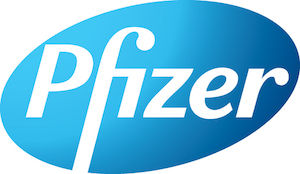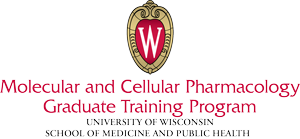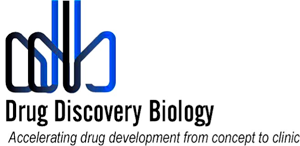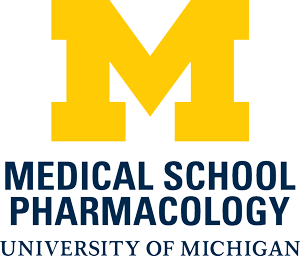Thanks to all our sponsors and partners who help make the ASPET annual meeting at Experimental Biology a success.
Gold Level Sponsor

About Pfizer Inc.: Working together for a healthier world®
At Pfizer, we apply science and our global resources to bring therapies to people that extend and
significantly improve their lives. We strive to set the standard for quality, safety and value in the
discovery, development and manufacture of health care products. Our global portfolio includes
medicines and vaccines as well as many of the world's best-known consumer health care products.
Every day, Pfizer colleagues work across developed and emerging markets to advance wellness,
prevention, treatments and cures that challenge the most feared diseases of our time. Consistent
with our responsibility as one of the world's premier innovative biopharmaceutical companies, we
collaborate with health care providers, governments and local communities to support and expand
access to reliable, affordable health care around the world. For more than 150 years, Pfizer has
worked to make a difference for all who rely on us. To learn more, please visit us at www.pfizer.com.
Academic Partner Sponsors

The goal of the T32-supported Molecular and Cellular Pharmacology (MCP) program at the University of Wisconsin-Madison (UW-Madison) is to prepare top-caliber predoctoral trainees for leadership positions in academia, industry, government, and non-profit organizations by providing exemplary training in interdisciplinary research at the forefront of Pharmacology and Pharmaceutical Sciences. Our program provides a nucleus around which faculty, students, scientists, and trainees from across the UW-Madison campus meet and synergize to advance Pharmacology research and training. We have a core of ~30 dedicated faculty trainers, representing more than ten departments, whose interests focus on understanding molecular, cellular, and physiological mechanisms by which drugs or natural ligands interact with cellular receptors and signaling pathways, and their resultant effects in biological systems. Each was selected based on having a robust, extramurally funded research program and a demonstrated commitment to training graduate students in the conduct of successful Pharmacology-based research. We encourage you to join us!

Research within Drug Discovery Biology (DDB) at Monash Institute of Pharmaceutical Sciences, Monash University (ranked #2 for Pharmacy/Pharmacology) adopts multidisciplinary approaches to understand drug targets in biomedicine and disease and inform drug discovery. A major focus of DDB research is G protein coupled receptors (GPCRs) that are the largest group of drug targets. We seek to understand GPCR and ion channel function at the molecular, cellular and whole organism levels. Our researchers are world leaders in the study of novel pharmacology paradigms: allosteric modulation, biased agonism, receptor trafficking, and compartmentalized signaling. DDB offers opportunities for translational research in neuropsychiatric disease, inflammation, metabolic and endocrine disorders, cardiovascular disease and cancer.
Our elite PhD program, ensures our graduates are not only specialists in their field, but also understand diverse topics, techniques and practices relevant to drug discovery. To learn more about our laboratories and research areas please go to:
http://www.monash.edu/pharm/research/areas/drug-discovery/research-areas

The department fosters independent but interactive research programs leading to the discovery of new knowledge that will impact our basic understanding, prevention or treatment of disease. Major research foci of the faculty include the areas of neuropharmacology, muscle therapeutics, and cancer/immunopharmacology. A significant number of faculty are actively involved in new drug development and discovery, while many others are vigorously involved in the development of biological therapies. Extramural research support is provided from federal, private and industrial sources to foster new discoveries in both molecular and systems pharmacology. The department has a strong commitment to the education of students in understanding and applying the principles of pharmacology and therapeutics as well as to train students in multidisciplinary research. Trainees include undergraduate and graduate students, postdoctoral fellows and M.D., Ph.D. students. Students interested in graduate education and training apply through the UF College of Medicine Interdisciplinary Program in Biomedical Sciences.

As one of the most well-funded departments within the University of Minnesota’s Medical School, the Department of Pharmacology has approximately 50 faculty members and 45 graduate students who work in a broad range of scientific disciplines, from cancer research and infectious disease to neurobiology. Our faculty and graduate students employ diverse experimental approaches ranging from structural and biophysical methods to animal and human studies. The breadth of our research allows us to provide the most multidisciplinary pharmacology training possible for the next generation of scientists, which will be critical to the success of our graduates in an increasingly competitive scientific job market.

Pharmacology at the University of Michigan has a 125-year history of healing through discovery. More than any other basic science discipline, pharmacology is tightly connected to the understanding and treatment of human disease. At U-M, trainees can be involved in the discovery of new drugs, modeling of drugs and their targets, detailed studies of drug mechanisms in disease from biochemical, molecular, and genetic perspectives, and translational studies aimed at moving drugs into the clinic. Our trainees have gone on to become pharmaceutical company executives, research directors, and senior scientists, directors of government research labs, and recognized chairs and faculty in academia. Explore the many training opportunities we offer, including summer internships, masters and doctoral programs, and postdoctoral fellowships.